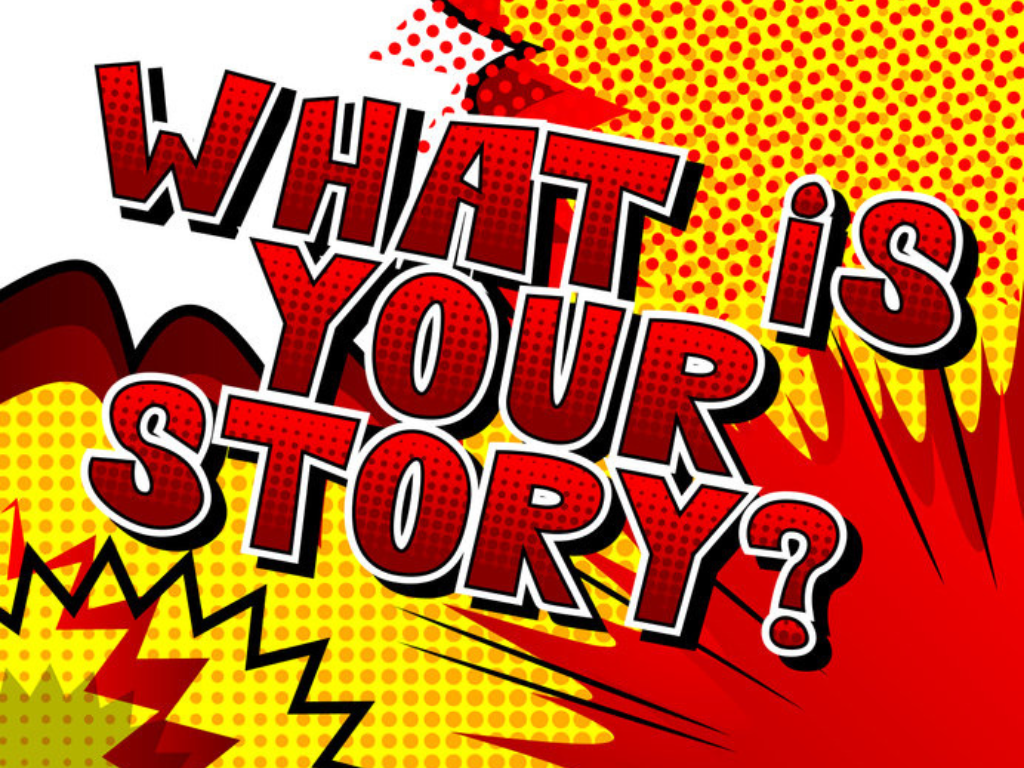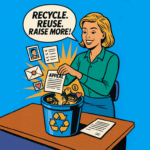Stories can be fundraising magic. You know that.
What doesn’t get said out loud often enough is this: Stories can be difficult to tell!
When they’re done well, they come across as effortless, almost as if all someone had to do was transcribe the story directly into their fundraising.
If only…
The reality is that stories are hard work. And there are serious barriers to finding and shaping stories so that they do the job we need them to do for fundraising.
Here are some of those story challenges and what you can do to work around them…
Good stories don’t grow on trees
You might be thinking, “Good stories are everywhere you look in my organization!”
If that’s the case for you, you are among the lucky few.
The other 90% of us have to struggle to find the stories. Mainly because we aren’t where they happen. The stories of pain and hardship, or victory and transformation — they take place on another floor, in another building, sometimes on another continent.
The people who encounter the stories aren’t always good at recognizing and sharing those stories. That’s not their job, and they have plenty of their own duties to keep them busy. In some cases, their training and orientation make it hard for them to see or appreciate the kinds of stories we need. Sometimes, they’re even philosophically opposed to sharing those stories.
There are two main workarounds for this challenge:
- Make sure you, or someone who is part of your fundraising team who values, recognizes, and knows how to gather the stories, get direct access to where they happen regularly. For some of us, this is easy and inexpensive, and it is mainly a matter of spending the time to do it. For others, it is expensive, difficult, and takes a lot of time. But it’s important! (This can also be outsourced: Most freelance writers are also skilled at gathering stories.)
- Cultivate your frontline storytellers. Anyone, no matter what their profession, can have a natural gift for storytelling. It’s not a rare talent. There’s a good chance someone on your program side is good at seeing and sharing stories. Find out who those people are and become best friends with them. They are gold!
Even when you find a good story, you still have to shape it
Life doesn’t happen in neat, story-shaped blocks. Everything happens in a massive jumble of details with no clear beginning or end.
The storyteller’s job is to find the relevant and interesting details, ignore the irrelevant ones. Then to shape it all into a story structure with a beginning, middle, and end. All without making stuff up.
The good news is we are all surrounded by stories from the day we’re born. We know what stories are like. That’s incredible training.
But it helps to get refreshers.
- Read stories. Fiction and nonfiction. Make reading (or listening) a priority. It helps sharpen your inner sense of what stories are like.
- Learn journalism. It’s the most common practical storytelling training available. (But be careful: Journalism tends to include the maximum level of detail. Fine for the purpose of information, not so great for making stories emotionally powerful.)
- Get fundraising-specific storytelling training. There’s a lot available out there. Members of The Fundraisingology Lab by Moceanic can access an in-depth course called Your Blueprint for Donor-Focused, High-Revenue Fundraising Storytelling. Find out how to join here.
Everybody (including you) misleads you about what stories you should be telling
Years ago, I wrote an appeal for a homeless shelter that included a story about a local man who was living under a bridge. Part of his diet was something he called “homeless mac and cheese” — a packet of ramen noodles with a handful of cheese puffs mixed in. The resulting orange stew is warm, fills you up, and tastes almost like real food. But it won’t keep you healthy for long.
The executive director of the organization rejected my letter because of that story. It zeroed in on one person, not the “real problem” of homelessness in the community. The detail about homeless mac and cheese was a meaningless distraction.
Any time you write a fundraising story, there’s a chance your colleagues, bosses, or board members will object to it. The more powerful the story, the more likely it will be disliked. They’ll have objections like these:
- It isn’t compelling. I would never respond to that.
- It leaves out important details about our work.
- It’s soupy and emotional.
- It embarrasses me (or us).
And let’s be frank. Even experienced fundraisers like you and me might dislike a story for reasons just like that. And how often do we self-censor our stories in the first place, knowing what colleagues are likely to say about them?
Those kinds of objections are personal opinions and preferences. Not knowledge-based professional storytelling principles. But how are people without fundraising training or experience to know that? Their preferences are all they have to work with. Their duty is to give useful feedback. That’s what they’re doing, as far as they know.
This is a big problem. It hits most organizations and people in some way. Changing it takes an ongoing process doing things like these:
- Show objectors the professional knowledge that guides you to do things the way you do them. Point it out in books or blog posts so they can see it’s not something you just made up, but the effective way to tell stories.
- Encourage objectors to read books and blogs or even take courses in fundraising storytelling. This may not be reasonable for those who are very busy in jobs that aren’t fundraising, but for others, it could be eye-opening and helpful. (Members of The Fundraisingology Lab have access to the huge library of courses and other materials and can invite others in their organizations to take advantage of them. Find out how to join here.
- Work to promote the “Two Cultures” framework for nonprofit organizations. It’s a way of thinking that can transform your organization! Read about it at: It Takes 2 Cultures to Make a Great Nonprofit — and That Can Be Hard!
If you find storytelling to be among your top challenges, you are not alone! It’s hard for nearly everyone.
And finding solutions is worth the effort.
Get the help you need to tell great stories and promote the power of those stories within your organization. Join The Fundraisingology Lab by Moceanic. You’ll get the tools, the information, and the supporting community that will take you to new places in your fundraising career. Join the waiting list now and you’ll be the first to hear when the doors open again!
Related Blog Posts:










